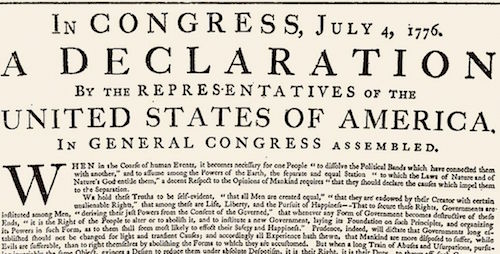 Culture & Ethics
Culture & Ethics
 Faith & Science
Faith & Science
In His Dissent on Obergefell, Clarence Thomas Defends Human Exceptionalism

I am not involved in the same-sex marriage debate. I want both sides on that contentious issue to agree with me on human exceptionalism — and the best way to be heard by all is to let others comment on domestic relations jurisprudence. But I was struck by the clarion defense of equal and intrinsic human dignity issued by Justice Clarence Thomas in his Obergefell v. Hodges dissent.
The heart of his opinion begins by quoting the immortal phrase “all men are created equal” from the Declaration of Independence. He proceeds to apply that crucial insight from the American Founding. From his dissent:
The corollary of that principle is that human dignity cannot be taken away by the government. Slaves did not lose their dignity (any more than they lost their humanity) because the government allowed them to be enslaved. Those held in internment camps did not lose their dignity because the government confined them. And those denied governmental benefits certainly do not lose their dignity because the government denies them those benefits.
The government cannot bestow dignity, and it cannot take it away…
Our Constitution — like the Declaration of Independence before it — was predicated on a simple truth: One’s liberty, not to mention one’s dignity, was something to be shielded from — not provided by — the State.
Slavery did not strip its victims of their inherent dignity. It was evil precisely because they had inherent dignity. So does each and every human being.
That is why the issues I discuss — euthanasia, health care rationing, personhood theory that demeans the unborn, newly born, and profoundly cognitively disabled, genetic engineering, transhumanism, and the efforts to endow flora and fauna with human-type rights (among many others) — are so important. All, in their own way, are corrosive of the idea of the unique moral worth of all human life.
Whatever you believe about the issue addressed in Obergefell, Thomas is to be applauded for issuing an important reminder of the essential truth that undergirds Western civilization.
